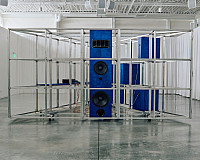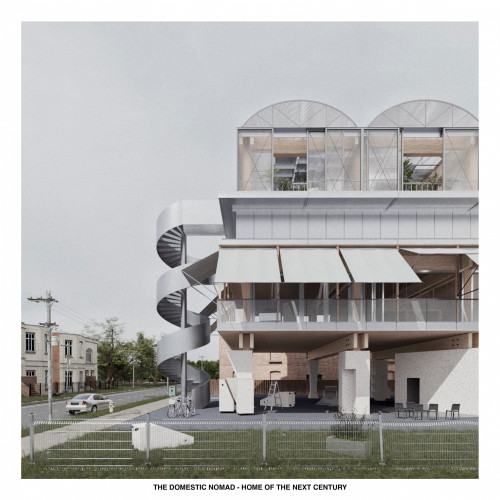
With issues like climate change, urbanization, and technological advancements at the forefront, the competition invited participants to think beyond the conventional and explore the uncharted territories of architectural design by pushing the boundaries, challenging preconceptions, and creating visionary concepts for homes that will define the 22nd century.
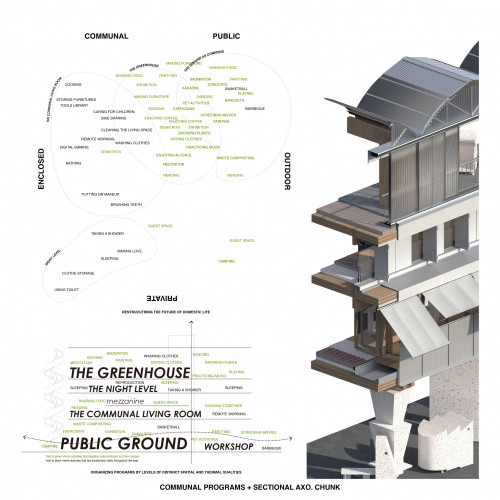
Inspired by Gilles Deleuze’s notion of nomadism in “A Thousand Plateaus,” the team proposed a radical rethinking of residential spaces and household activities, prioritizing public, communal living over private ownership—even in cold climates like Chicago, their chosen site. Their project manifests as a versatile framework of four distinct levels, each offering unique combinations of height, light, acoustics, and thermal properties designed to foster shared experiences and reduce the requirement for extensive private areas.
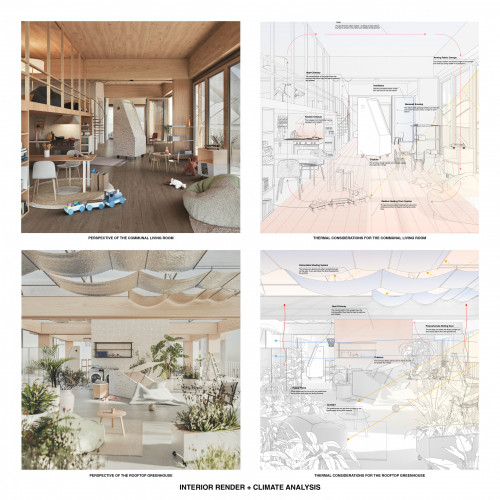
Modular, multi-functional ‘creatures’ (a tribute to Hejduk’s “Victims,” 1984) become the catalysts for domestic mobility and community engagement by carrying practical function (sleeping, dining, etc.) and migrating to different levels through the “hearth.” Moving as shared infrastructure between the indoors and outdoors depending on the time and season, these nomadic apparatuses redefine interaction with the neighborhood and challenge the constructed borders of space, enclosure, program, and privacy on a domestic scale.
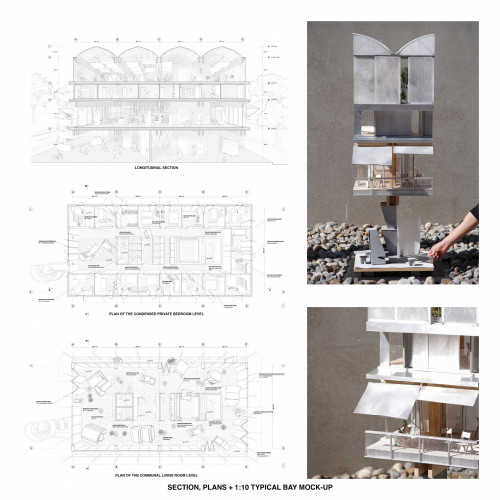
“We wanted to use the Home2124 competition as an opportunity to present our thoughts on the future of living in a communal way and exhibit how novel spatial relationships and technologies could foster alternative forms of a collective domestic life,” says Shen.
After being critiqued by a jury of leading architects, designers, and academicians of international repute, the Syracuse University team’s project was selected to receive the competition’s first-place prize. Shen and Zhuo were awarded with a certificate of recognition, interviewed by competition organizers, and their project will be included in an upcoming publication.
In addition to winning the Home2124 international award, “The Domestic Nomad” received the overall design prize in the Spring 2024 ARC 409 Integrated Design Studio Prize competition at Syracuse’s School of Architecture competition at Syracuse’s School of Architecture.
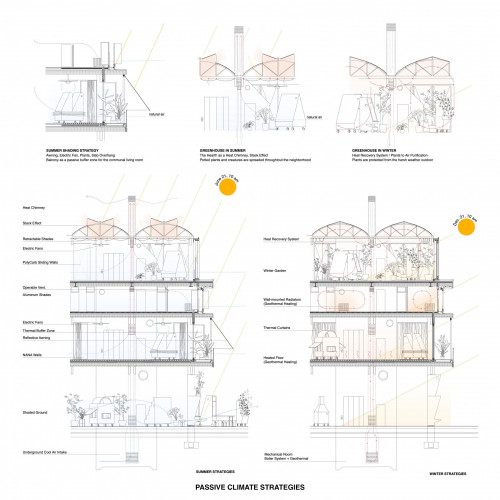
“The Domestic Nomad” was also recently selected for a student design award from the American Institute of Architects Central New York Chapter (AIA CNY), which will be presented to Shen and Zhuo at the 2024 AIA CNY Celebration of Architecture event on November 15.
“We hope “The Domestic Nomad” will be remembered for its legible approach that not only redefines living spaces but also inspires a new generation of architects and students to think critically about the role of design in society’s progression,” says Shen.




